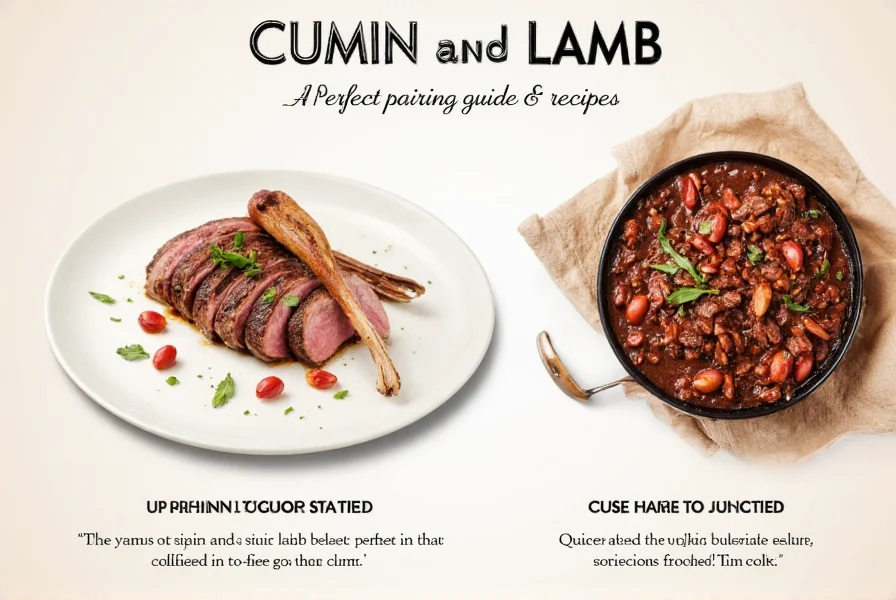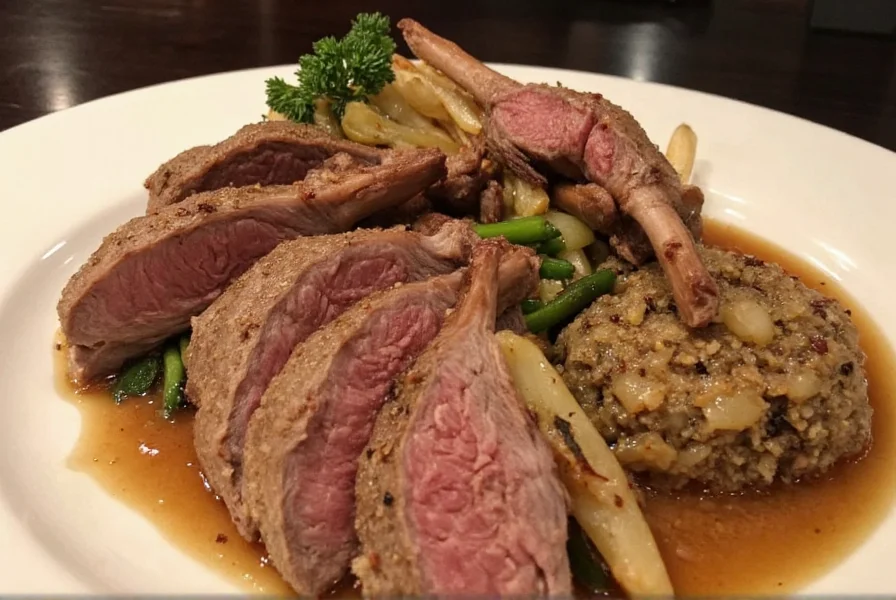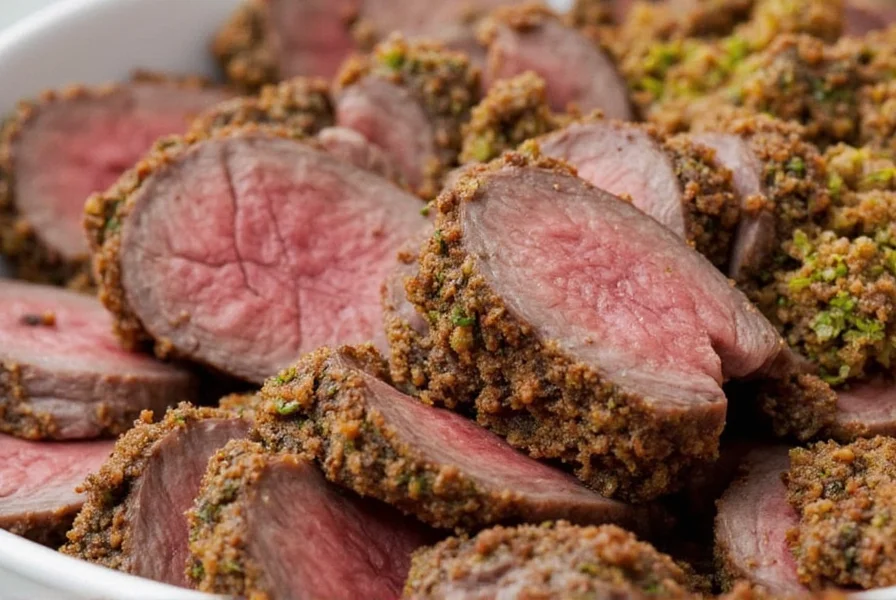For centuries, cumin and lamb have been paired across Mediterranean, Middle Eastern, and North African cuisines. This enduring combination isn't accidental—it's rooted in culinary science and cultural tradition. Understanding why these ingredients work so well together can transform your cooking from ordinary to extraordinary.
The Science Behind Cumin and Lamb Compatibility
Cumin contains key aromatic compounds like cuminaldehyde that interact beautifully with lamb's fat composition. Lamb's higher fat content compared to other meats provides the perfect medium for cumin's oil-soluble flavor compounds to distribute evenly throughout the meat. When cumin is heated, these compounds become more volatile, penetrating the meat's fibers while simultaneously creating new flavor molecules through the Maillard reaction.
Professional chefs recommend toasting whole cumin seeds in a dry pan before grinding them fresh. This process activates essential oils, releasing up to 30% more aromatic compounds than pre-ground cumin. The toasted seeds should be cooled completely before grinding to preserve their volatile oils.
Cultural Significance Across Global Cuisines
This flavor pairing appears in traditional dishes worldwide:
| Region | Signature Dish | Distinctive Preparation |
|---|---|---|
| Morocco | Tagine | Slow-cooked with preserved lemons and olives |
| Greece | Kleftiko | Oven-braised with lemon and oregano |
| India | Rogan Josh | Kashmiri preparation with yogurt and dried flowers |
| Mexico | Birria | Slow-cooked with dried chilies and spices |
Each culture has refined this pairing over generations, adapting techniques to local ingredients while maintaining the essential cumin-lamb relationship. In Moroccan cuisine, cumin often appears alongside cinnamon and ginger, creating complex flavor layers that balance lamb's richness. Indian preparations typically include cumin in both whole and ground forms at different cooking stages for dimensional flavor.
Practical Application: Maximizing Flavor in Your Kitchen
When working with cumin and lamb, timing and technique significantly impact the final dish:
Marinade Ratios for Perfect Cumin-Lamb Balance
For every pound of lamb, use:
- 1½ teaspoons freshly ground cumin (or 2 tsp whole seeds toasted and crushed)
- 3 cloves minced garlic
- 2 tablespoons olive oil or yogurt
- ½ teaspoon black pepper
- ¼ teaspoon cayenne (optional)
Marinate for 4-12 hours—never超过24 hours as the acids can begin to break down the meat's texture. For ground lamb dishes, incorporate cumin directly into the meat mixture rather than marinating.

Avoiding Common Cumin-Lamb Mistakes
Many home cooks make these critical errors when pairing cumin with lamb:
- Using pre-ground cumin - Loses 60% of volatile oils within 6 months
- Adding cumin too late - Needs time to bloom in fat for full flavor development
- Over-marinating - Acidic components can make meat mushy
- Burning cumin - Toast seeds just until fragrant (30-60 seconds)
- Ignoring regional pairings - Cumin works differently in Greek vs. Indian preparations
Three Authentic Cumin-Lamb Recipes to Try
1. Middle Eastern Cumin-Rubbed Leg of Lamb
Score the lamb surface, then rub with paste of toasted cumin, garlic, lemon zest, and olive oil. Roast at 325°F (163°C) until internal temperature reaches 135°F (57°C) for medium-rare. Rest 20 minutes before carving.
2. Moroccan Lamb and Apricot Tagine
Brown lamb cubes, then simmer with onions, toasted cumin, cinnamon, dried apricots, and broth for 2 hours. Finish with fresh cilantro and toasted almonds.

3. Indian-Spiced Lamb Koftas
Mix ground lamb with toasted cumin, coriander, ginger, and mint. Form into cylinders and grill over medium heat for 12-15 minutes, turning occasionally.
Storage and Preparation Tips
Store whole cumin seeds in an airtight container away from light for up to 2 years. Ground cumin loses potency quickly—grind only what you'll use within 2 weeks. When cooking lamb with cumin, add whole seeds early in the cooking process to infuse the oil, then add ground cumin midway through to preserve its more delicate top notes.
For tougher cuts like shoulder, the long cooking time allows cumin's flavors to penetrate deeply. With tender cuts like loin, use cumin more sparingly as a finishing spice to avoid overwhelming the delicate meat flavor.
Frequently Asked Questions
What's the best type of cumin to use with lamb?
Iranian or Turkish cumin offers the most balanced flavor profile for lamb dishes. These varieties have higher concentrations of beneficial aromatic compounds without excessive bitterness. Always use whole seeds that you toast and grind yourself rather than pre-ground cumin, which loses up to 80% of its volatile flavor compounds within months of grinding.
Can I use cumin with all cuts of lamb?
Yes, but adjust your technique based on the cut. For tougher cuts like shank or shoulder, add cumin early in slow-cooking processes to allow flavors to penetrate. With delicate cuts like loin or chops, use cumin more sparingly as a finishing spice or in light marinades to avoid overwhelming the meat's natural flavor. Ground lamb benefits from cumin incorporated directly into the meat mixture rather than marinating.
How does cumin affect lamb's nutritional profile?
Cumin adds minimal calories but significant nutritional benefits when paired with lamb. It contains iron, manganese, and antioxidants that complement lamb's high protein and B-vitamin content. The compounds in cumin may also help reduce the formation of harmful heterocyclic amines that can develop when meat is cooked at high temperatures. Additionally, cumin's digestive properties help balance lamb's richness, making the meal easier to digest.
What spices complement cumin when cooking lamb?
Coriander, garlic, and paprika form the classic triumvirate that enhances cumin's pairing with lamb. For Mediterranean dishes, add oregano and rosemary. In Indian preparations, combine with cardamom and cloves. Middle Eastern recipes often include cinnamon and turmeric. The acidity of lemon or pomegranate molasses provides essential balance to cumin's earthiness. Always toast whole spices before use to maximize flavor extraction.











 浙公网安备
33010002000092号
浙公网安备
33010002000092号 浙B2-20120091-4
浙B2-20120091-4